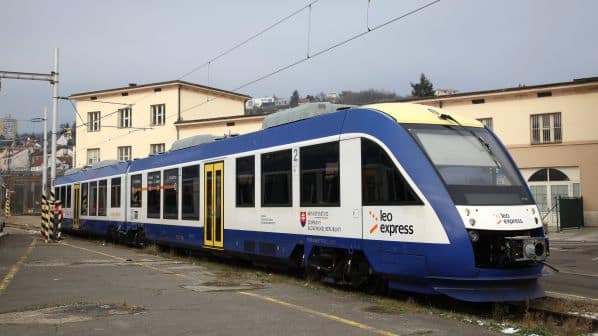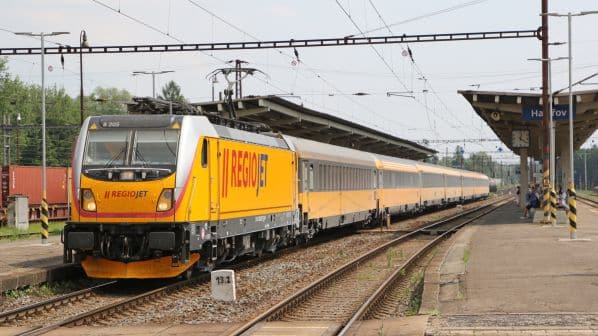THE European passenger rail market appears in fine health this year, as new open-access services prepare for launch and many operators continue the development of new routes.
The landscape for public service obligation (PSO) services is also changing, with many contract operators changing ownership and direct awards - which have benefitted state-owned incumbents - no longer possible since the end of 2023.
Active in the market are established national or regional operators, normally state-owned, alongside other transport groups. Some of the latter are privately owned, often by infrastructure investment businesses, and others wholly or partly owned by national operators from other countries.
Contract operation
The Fourth Railway Package aims to create an open market for the operation of regional services across the European Union (EU), requiring all services supported with PSO funds to be tendered, other than in certain specific situations defined in law. For many EU countries this means all services will be tendered in the next decade even if initial long-term arrangements have been agreed between governments and state-owned railways in recent years, effectively delaying the date for tendering. In some cases where such arrangements are planned but contracts have not yet started, such as in the Netherlands, the European Commission (EC) is already taking enforcement action.
Multiple operators could soon be active in most countries in this open market, although some smaller countries are likely to tender operation of the entire network as a single contract.
This potential new market opportunity has led many new investors to acquire existing contract operators and, in some cases, has seen state-owned companies invest in both open-access and contract operators. This offers Europe’s national railways scope to expand or, as they face competition in their home markets, maintain revenue and learn how to operate more effectively in an environment where tendering is the norm.
During 2023 German Rail (DB) announced it was selling its Arriva business to US investor I Squared. Arriva started life as a bus company in Britain and expanded into rail in Britain and Germany before being bought by DB in 2010. Whilst DB had already sold some Arriva rail companies in Sweden and Denmark, the remaining business bought by I Squared enjoys access to multiple markets and is now free of the constraints that prevented it from competing with its parent DB, offering the potential to expand into Germany and challenge the dominant operator.
Multiple operators could soon be active in most countries in this open market.
Italian national operator Trenitalia was already active in the regional market in Germany via its Netinera group of companies, which has its origins in the German part of Arriva, divested by DB when it bought the company. British transport group Go-Ahead announced in late 2023 that it will sell its German businesses to Austrian Federal Railways (ÖBB), and the transaction is likely to be completed early this year. ÖBB has told local media it intends to use the new acquisition to grow its presence in the German market. Go-Ahead retains a passenger operating business in Norway and this may be sold in 2024, as like the German business, it no longer fits with the company’s strategic direction. Go-Ahead itself was bought by a consortium of Australian firm Kinetic and Spanish transport investor Globalvia in 2022.
Spanish national operator Renfe acquired a 50% stake in Czech private operator Leo Express in 2021, and now plans to expand both its open-access and contract business. Leo Express has announced plans for service expansion from December 2024. The company began operation of its first PSO contract outside the Czech Republic, where it has had such contracts since 2019, in Slovakia in December 2023.
In France private company Transdev is mobilising for its contract to operate regional services between Marseille and Nice for the Sud (Provence-Alpes-Côte d’Azur) region from 2025. This is the first PSO contract in France to be awarded to any company other than French National Railways (SNCF).
However, not all expansion into contracted services is plain sailing, as Netherlands Railways (NS) subsidiary Abellio discovered in Germany in 2021 when financial problems led it to withdraw from almost every contract it held. In Sweden, Hong Kong-based MTR will cease operation of suburban services around Stockholm in March, having negotiated an exit from its contract in late 2023. National operator SJ has agreed an interim contract to take over operation.
The number of open-access operators is increasing, with many announcing plans to introduce new services this year and over the next few years, sometimes competing with one another. Established Czech operator RegioJet is planning a new overnight service linking Przemysl on the border between Poland and Ukraine with Hannover in central Germany. They are due to start in March alongside a new daytime service from Prague to Berlin.
Service frequencies on existing RegioJet routes from Prague to Slovakia, Austria and Hungary will also increase during 2024, and a new service from Prague to Mukachevo in Ukraine via Čierna nad Tisou in Slovakia is also planned, operated in Ukraine by Ukrainian Railways (UZ).

Photo: Keith Fender
RegioJet is also a significant contract operator in the Czech Republic and this will expand in late 2026 when it begins operation of a major new regional contract around the northern city of Ústí nad Labem.
Other major open-access operators include Flixtrain, which is owned by German and American-based investors and has announced plans to expand its network in Germany and also applied for paths in the Netherlands. RDC Deutschland, the wholly-owned subsidiary of Pittsburgh-based Railroad Development Corporation (RDC), runs seasonal long-distance trains in Germany on an open-access basis as well as trains carrying road vehicles and their passengers to the island of Sylt. The company has also become an important supplier of rolling stock and traction to other operators, in particular those operating overnight services.
New Dutch operator GoVolta, a subsidiary of established tour operator Flywise, is planning to offer daily services from Amsterdam to Berlin from May, and also to Paris and Basel this year. Further services to Munich and Copenhagen are planned from 2025. Fellow Dutch company European Sleeper plans to extend its overnight Brussels/Amsterdam - Berlin service, which launched in 2023, south to Dresden and the Czech capital Prague from March.
Overnight rail services between Scandinavia and the rest of Europe have improved significantly in recent years with wholly commercial services operated by Swedish company Snälltåget, which is owned by Transdev, and other services part-funded by the Swedish government, operated on a contract basis by national operator SJ on the route between Stockholm/Copenhagen and Hamburg/Berlin. In France, domestic overnight trains funded via the PSO arrangements for long-distance SNCF services are being increased, using recently refurbished rolling stock. A Paris - Aurillac service was introduced in December 2023.
The main player in the European overnight market remains ÖBB, which operates its Nightjet-branded network in conjunction with other national operators. The network was expanded in December 2023 with direct trains from Berlin to both Paris and Brussels, while ÖBB has begun to introduce 33 purpose-built Nightjet trains to progressively replace older coaches on some routes.
High-speed market
Open-access competition for high-speed traffic is well established in Italy and Spain, with Trenitalia competing with SNCF on the Paris - Lyon line in France. This year should see more competition as plans for future expansion progress.
Competition in Spain expanded significantly during 2023, with Renfe, Iryo and SNCF now going head-to-head, and this year will see more new services and routes. Renfe is planning to introduce the first of its Talgo class 106 Avril high-speed trains in 2024 to operate both AVE and low-cost Avlo services. Infrastructure manager Adif is planning to invite new operators to introduce on-rail competition to routes north of Madrid, in addition to the existing competitively operated services to Barcelona, Valencia, Malaga, Alicante and Seville.
High-speed services to London through the Channel Tunnel are also attracting the interest of new operators
In Italy shipping line MSC has announced plans to buy a 50% stake in Europe’s first open-access high-speed operator, Italo-NTV, from its American majority owner. The deal should be completed early this year. MSC is also a major cruise ship operator sailing from Italian ports and the owner of several rail freight companies.
Plans by start-up Le Train, backed by a variety of mainly French investors, to operate high-speed services in France were announced in early 2023. Le Train has signed a contract with Spanish manufacturer Talgo for the supply of 10 Avril high-speed trains and plans to start services in 2025.
Trenitalia is a key shareholder in Ilsa, along with Globalvia and airline Air Nostrum, which has been operating in Spain under the Iryo brand since 2022. The Italian state operator has applied through its Dutch subsidiary QBuzz for paths to operate a new high-speed service from Amsterdam via Utrecht to Cologne and Frankfurt from 2027, competing with the existing DB-NS International ICE service.
High-speed services to London through the Channel Tunnel are also attracting the interest of new operators looking to challenge Eurostar, which has enjoyed a monopoly on this route since 1994.
In 2023 several companies announced plans to introduce services, including Spanish company Evolyn which intends to operate between London and Paris with a new fleet supplied by Alstom, although the manufacturer says that no firm contract has yet been placed. Dutch start-up Heurotrain also announced plans to compete with airlines as well as Eurostar on the Amsterdam - London route. Heurotrain has applied to the Dutch rail regulator ACM to introduce 16 trains a day on the Amsterdam - Paris route and 15 a day between Amsterdam and London from December 2027.
According to reports in the British media, Virgin Group has also been looking at entering the cross-Channel market, although the company has not confirmed this. IRJ also understands that another British-based group is also exploring options to run cross-Channel services.
European national operators which have publicly announced their interest in serving London include Renfe in 2021, Swiss Federal Railways (SBB) in late 2023 and Trenitalia, which has included Paris - London on its published future Iryo network map. DB previously announced plans to operate from Frankfurt to London, but abandoned the project due to operational difficulties and the high cost.

